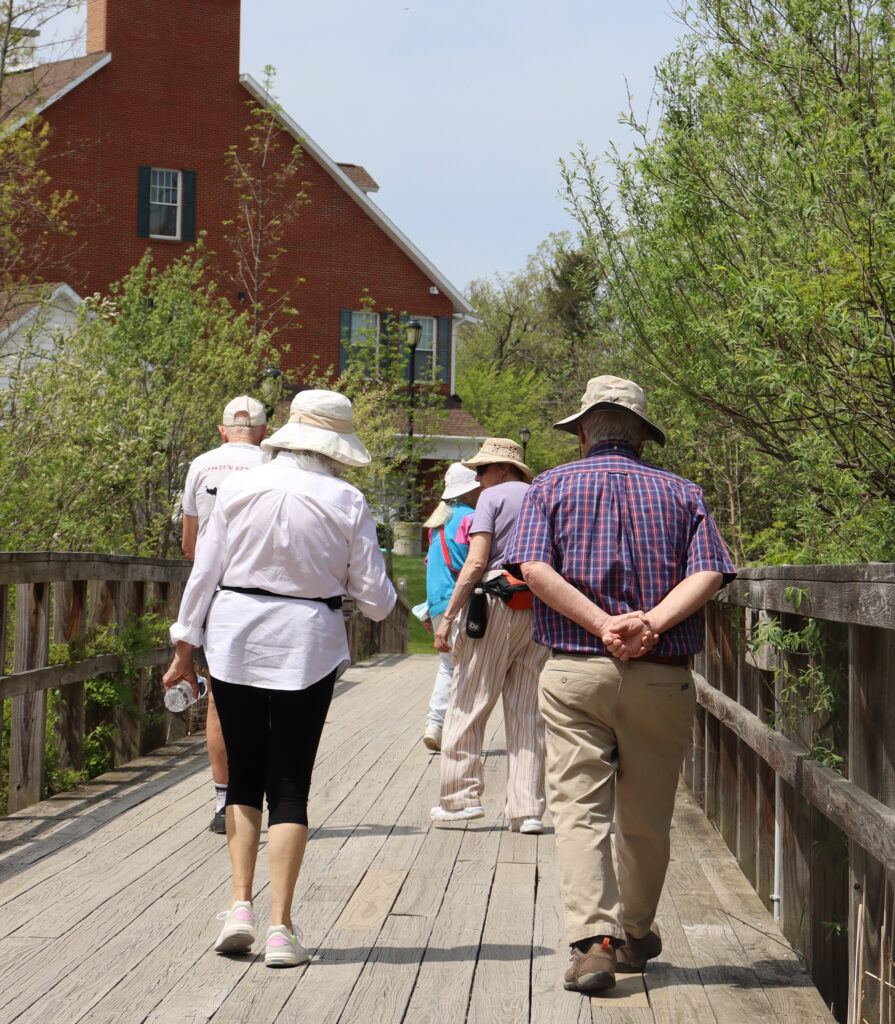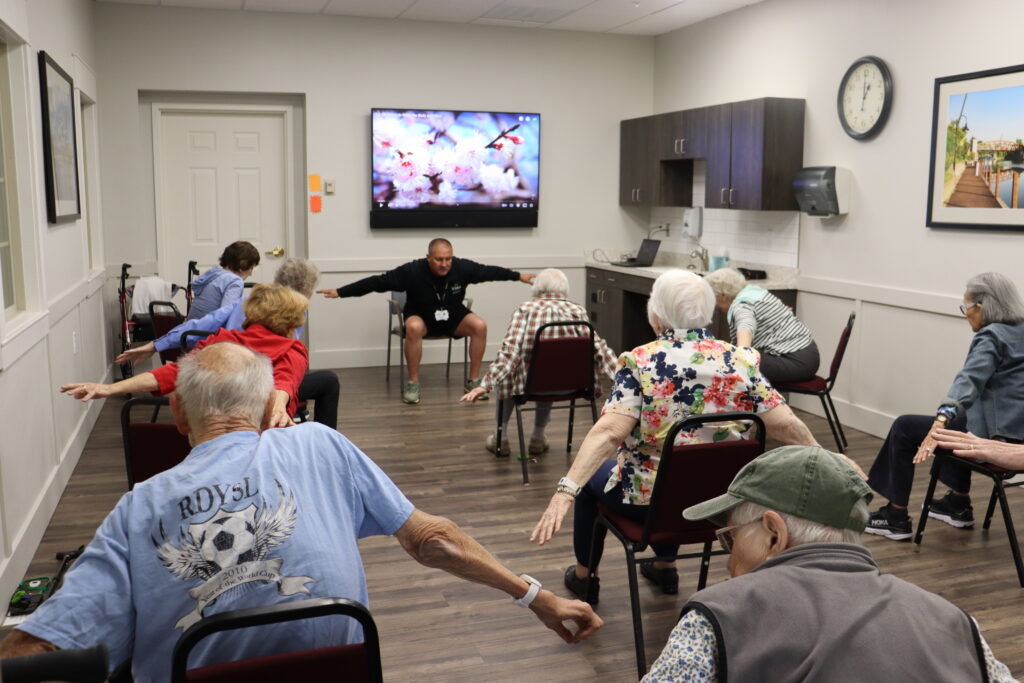Consistent physical activity can benefit almost anyone. From helping with joint health, contributing to heart health, and its overall mood boosting qualities, individualized exercise is a vital part in creating a whole life.
According to Better Health Channel, “you don’t need a great memory to enjoy yourself. Each day, there are many things that provide us with purpose and pleasure.”
Why Physical Activity for People Living with Dementia?
Daily physical activity has been linked to long and healthy lives among all demographics. Although there is no cure for Alzheimer’s disease or other forms of dementia, more and more studies have shown that physical activity can help slow cognitive decline.

In Harvard Health’s Can physical or cognitive activity prevent dementia?, Dr. Andrew Budson wrote “results showed that whether individuals had high or low levels of tau in their blood (a brain protein located in neurons that develops abnormally in individuals with dementia), increased physical activity was associated with a slower rate of cognitive decline.” Total tau concentration is a marker of Alzheimer’s pathology, which was examined in a recent study.
Among the 1,159 participants, 31% reported little or no physical activity, 34.5% reported medium physical activity (less than 150 minutes/week), and 34.5% reported high physical activity (at least 150 minutes/week).
“Individuals who were more cognitively and physically active were able to delay their clinical Alzheimer’s disease diagnosis and cognitive decline,” wrote Dr. Budson.
Exercise and its Protective Abilities for the Brain

In a 2022 study by the Alzheimer’s Association, adults who remained active had higher levels of brain proteins that enhance connections between neurons, which in turn improves their memory and boosts cognition. These results were also found in the participants who were showing signs of dementia and were already diagnosed with dementia.
“Greater late-life physical activity is associated with higher presynaptic protein levels,” according to the Alzheimer’s Association study.
When planning an exercise for someone with dementia it is crucial to follow the following guidelines:
- Make sure the activities promote self-esteem.
- Be aware of lost abilities.
- Limit the amount of new skill-learning.
- Listen to the person’s wants and goals.
- Incorporate activities that you enjoy and can do with the person.
Types of Brain-Benefiting Exercises
Aerobic Exercise: Boosts blood flow to your brain and also boosts the size of your hippocampus, the part of your brain that is involved in verbal memory and learning, according to AARP.
Weight Training: Focusing on form and movement while weight training can exercise the neutral circuits in your brain.
Yoga: Many studies have shown that frequent meditative yoga benefits verbal and visual-spatial memory.
Tai Chi: Combines mental focus and movement to strengthen multitasking and problem solving. AARP reports that people who took part in a 12-week tai chi program had “more activity in the prefrontal cortex, the part of the brain where higher-level thinking occurs.”
Dancing: A 2018 study found that “dance interventions improved cognitive function in dementia patients.”
Sources:
Dementia – activities and exercise – Better Health Channel
Dementia – Diagnosis and treatment – Mayo Clinic
Can physical or cognitive activity prevent dementia? – Harvard Health
5 Brain Exercises That Can Keep Your Mind Sharp (aarp.org)
Fitness Programs at St. John’s – St. John’s (stjohnsliving.org)










